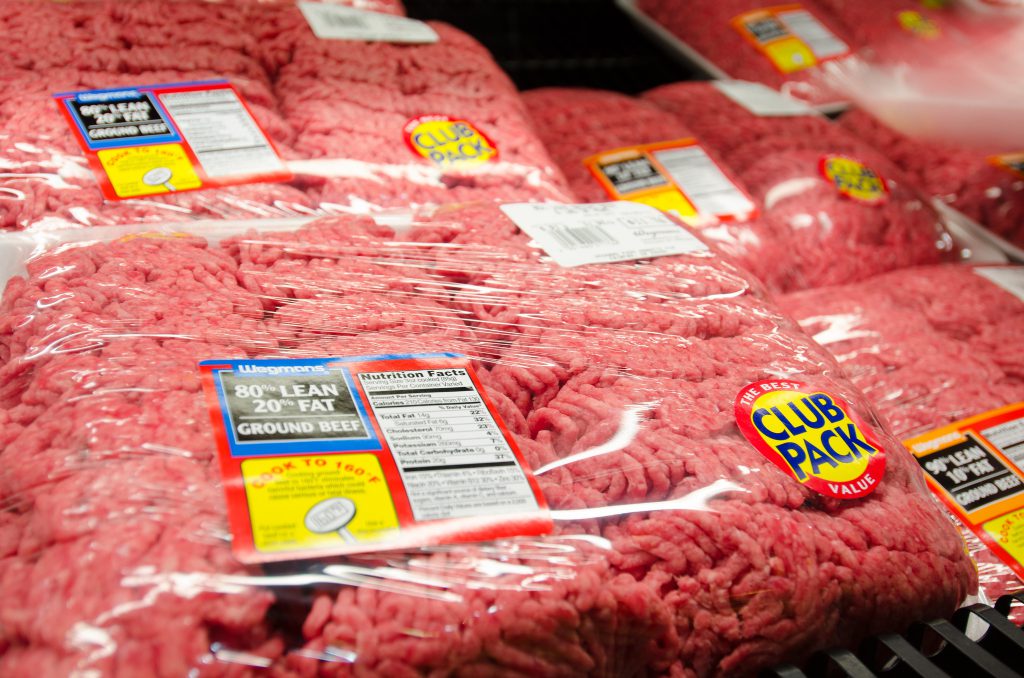Bill Would Require Grocers, Restaurants To Label Lab-Grown Meat
Proposal includes fines that mirror penalties set for falsely labeling margarine as butter
In the state known as America’s Dairyland, Wisconsin law sets penalties for selling margarine unless it’s clearly labeled as such.
Now, state lawmakers are reviving another food-related proposal that’s inspired by those pro-butter requirements.
The latest bill, however, applies specifically to lab-grown meat.
Under a proposal circulating for co-sponsors, any meat or seafood that’s cultivated in a lab would have to be labeled as “lab-grown meat” if it’s sold at restaurants or stores in Wisconsin.
State Rep. Clint Moses, R-Menomonie, described it a “truth-in-labeling bill.”
“It’s very important to the general public, because they want to know what it is they’re eating,” Moses said in an interview with WPR. “I would certainly want to know if what I was eating was something synthetically made, or man-made, versus something that was naturally occurring in our meat production process.”
Moses authored the proposal alongside state state Sen. Romaine Quinn, R-Birchwood.
Lab-grown meat isn’t on grocery store shelves yet. But the U.S. Department of Agriculture set the stage for its expansion in 2023 when it granted approval to two companies that cultivate chicken meat from animal cells in a lab.
Lawmakers in multiple states have enacted “preemptive” bans on selling lab-grown meat, while others have adopted state laws setting labeling requirements.
A cosponsorship memo attached to the latest Wisconsin bill describes the proposal as a way to “get ahead of the game and support our Wisconsin farm economy.”
A similar proposal to mandate labeling for lab-grown meat in Wisconsin died last session without making it to a floor vote.
Agricultural groups including the Wisconsin Cattlemen’s Association, the Wisconsin Pork Association and the Dairy Business Association came out in support of last session’s bill.
But the Wisconsin Grocers Association and the Wisconsin Restaurant Association had raised concerns, saying that the labeling requirements could be “onerous.”
Moses said he’s willing to work with industry groups on potential amendments.
“I want to do whatever I can to support our businesses in our state and not make things harder,” Moses said. “But, at the same time, I also want to protect the consumer.”
He also said he’s ironing out how the bill handles issues of interstate commerce, such as when lab-grown meat is manufactured in another state but sold in Wisconsin.
Violations could result in fines, jail times
The legislation would penalize businesses if they fail to label lab-grown meat.
Under the latest version of the bill, the first violation would carry a fine of $100 to $500. It could also result in three months in jail.
Subsequent violations could lead to fines between $500 and $1,000 or six to 12 months behind bars.
Those sanctions mirror the penalties set in the existing section of Wisconsin law, which regulates the sale of margarine.
Under those Wisconsin laws, restaurants or stores cannot offer butter alternatives unless they’re clearly labeled as margarine. The law also prohibits giving margarine to students, inmates or patients at public schools or other state institutions, unless it’s needed for health reasons.
And state law prohibits giving someone margarine instead of butter at a restaurant unless that person specifically asks for margarine.
A label for lab-grown meat? Bill would require disclosure at grocery stores, restaurants was originally published by Wisconsin Public Radio.
If you think stories like this are important, become a member of Urban Milwaukee and help support real, independent journalism. Plus you get some cool added benefits.






















